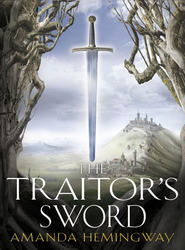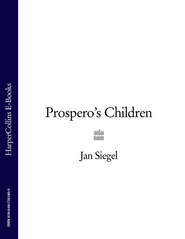По всем вопросам обращайтесь на: info@litportal.ru
(©) 2003-2024.
✖
The Greenstone Grail: The Sangreal Trilogy One
Автор
Год написания книги
2018
Настройки чтения
Размер шрифта
Высота строк
Поля
He looked for the place again, though always with a friend, not saying what he was searching for, half afraid of finding it. But even the hole seemed to have gone, and the sun stayed out of his eyes, and the chapel had vanished into the secrecy of the wood.
ONE The Fugitives (#ulink_7024a9ec-a745-590e-9954-60a2cae03e65)
At the dark end of a winter’s afternoon early in 1991 a young woman climbed down from a lorry on the road through Thornyhill woods.
‘Are you sure?’ said the driver. ‘I can take you on to Eade.’
‘I’m sure.’ He had placed a hand on her knee. That was enough. She had insisted on being set down.
‘It’s a lonely stretch of road,’ he said, hefting her bags out of the cab, too slowly for her taste. She reached up, tugging her suitcase from his grasp and stumbling under the sudden weight. The baby suspended in a sling about her neck woke at the jolt but didn’t cry, only staring about him with wide-open eyes. They were very dark, the iris so large they seemed to have almost no whites, like the eyes of some small nocturnal animal. But the lorry-driver wasn’t watching the child. He thought the woman looked very young to be a mother, little more than a girl, her round face unmade-up and somehow vulnerable, framed in a soft blur of hair, her colouring far paler than her baby. He wanted her to stay in his cab for all sorts of reasons, some kindly, some less so. ‘I thought you were going on to Crawley.’
‘I know where I’m going.’ Her determination belied her softness. She didn’t know, but it didn’t matter. She slammed the door, hooking the strap of her holdall over her shoulder and dragging the suitcase behind on inadequate wheels. After a few minutes, the lorry drove off.
They were alone now. It was a relief the lorry had gone, but one fear was swiftly replaced by others. She had been going to Crawley – she had a contact there, a child-minder, the friend of a friend, and the possibility of a job – but instead here she was, miles from anywhere, with little hope of another lift even if she had the courage to accept one. The baby was quiet – he cried so rarely it worried her – but she knew he would soon be hungry, and it was growing darker, and the road was lonely indeed. The suitcase trundled awkwardly at her heels, swaying from side to side, regularly banging against her leg, and the woods seemed to draw closer on either hand, squeezing the road into a narrow slot between thickets of shadow. She was a country girl with no real fear of the night, but she thought she heard a whisper on the windless air, the crack of a twig somewhere nearby, strange stirrings and rustlings in the leaf-mould. Since the birth of her child she had been subject to nervous imaginings which she had not dared to confide in anyone, dreading to be called paranoiac. There were footsteps pattering on empty streets, doors that shifted without a draught, soft murmurings just beyond the reach of hearing. And now the woods seemed to wake at her presence, so she thought the branches groped, and shreds of darkness slithered from tree to tree. They were there, always following, getting closer, never quite catching up …
When she saw the lights, she thought they too must be an illusion, and she was becoming genuinely unbalanced. Twin gleams of yellow, twinkling through the trees, the yellow of firelight, candlelight, electric light. As she drew nearer she feared they would vanish, but they grew clearer, until she could make out the source. Windows, windows in a house, and the yellow glow between half-drawn curtains. The house appeared to be set in a clearing among the trees: she could see gables pointing against the sky, and the dim suggestion of half-timbering criss-crossing the façade. It looked a friendly house, even in the dark; but she wasn’t sure. ‘What do you think?’ she whispered to the baby. ‘Shall we ask for help? Maybe they’ll offer us tea …’ Maybe it was a witch’s cottage, made of gingerbread, and the door would be opened by a hook-nosed crone who would show them the shortest way to her oven.
Footsteps. Footsteps on the empty road. She looked round, but could see nothing. Yet for a moment they were quiet and clear, soft-shod feet, or padded paws. And in the gloom there was a deeper dark, like a ripple running through the woods, and the sound of breathing, very close by, as if the wind itself had a throat, and was panting on her neck … Her suitcase bounced and lurched as she tugged it up the path to the door. There was a knocker, and an old-fashioned bell-pull that dangled. She tried both.
The door opened, and there was no hook-nosed crone but a large, comfortable-looking man with a looming stomach, shoulders to match, and very graceful hands. His hair was pale, his complexion a faded pink. His face wore an expression of vague benevolence, or maybe the benevolence was in the arrangement of his features, since his manner was initially hesitant, almost guarded. His eyes were periwinkle-blue between fat eyelids.
‘We’re lost,’ the young woman began, uneasily, ‘and I wondered …’
He was looking beyond her, into the night, where the footsteps were, and the breathing of the wind. For a fleeting instant she fancied he too heard or saw, though what he saw she didn’t know; she didn’t look round. Then his gaze came back to her, and he smiled. ‘Perhaps you’d like to come in. It’s getting late, and I was just making tea. If you need to feed the little one …’
‘Thank you so much!’
She stepped into the hallway, and the closing of the door shut out the dark and its phantoms. Long afterwards, she knew she had trusted him without thinking, on instinct. Maybe it was because he was fat, and benevolent-looking, and she was desperate and alone, or because the blue twinkle of his eyes had worked a charm on her, but in the end she realized it was because he had looked behind her, and seen something, seen them. He showed her into a room with oak beams, shabby capacious chairs, firelight. A large dog was sprawled on the hearthrug, a dog with shaggy fur and waggy tail, plainly a mongrel. It got up as they came in, stretching its forelegs, rump in the air, tail waving. ‘Why don’t you leave the child by the fire?’ the man said. ‘Hoover will look after him. I call him Hoover for obvious reasons: he cleans up the crumbs. My name is Bartlemy Goodman.’
‘Annie Ward.’ She lifted the baby out of the sling and set him down on the hearthrug, which was as shaggy as the dog and so similar they might have been related. ‘This is Nathan.’
Baby and dog surveyed each other, wet black nose almost touching small brown one. Then suddenly Nathan laughed – something as rare as his tears – and she imagined they had formed a bond which transcended any differences of species or speech. ‘I’d like to heat his milk,’ she said. ‘Would – would you mind watching him for me?’
‘Hoover will take care of it. He’s like Nana in Peter Pan. The kitchen’s this way.’
Looking back, doubtfully, she saw the dog gently nudging the child away from the fire with his muzzle. ‘He must be awfully well-trained,’ she said.
‘He’s very intelligent,’ said her host. Afterwards, she thought it wasn’t really an affirmation.
The kitchen was heavily beamed and stone-flagged as she might have expected, with an old-fashioned cooking range on which something that resembled a small cauldron was simmering. A drift of steam came from under the lid, bringing with it a rich, meaty, gamey, spicy smell that made her mouth water. She had eaten nothing but a sandwich at lunchtime, and it occurred to her that she was very hungry; but the baby came first. Bartlemy provided a saucepan and she heated milk while he made tea and set out a tray with earthenware mugs, pot and jug, fruit cake. She longed to ask what was in the cauldron, but was afraid of sounding too greedy, or too desperate. The room was of irregular shape and there were many small shelves on every angle of wall, bearing hand-labelled bottles and jars containing pickled fruits, chutney, strange-looking vegetables in oil. Herbs grew in pots and dried in bunches. There was a bowl of onions, white and purple, and another of apples and Clementines. No washing up stocked the sink and the draining board was very clean.
Back in the living room, she gave Nathan his bottle and some bread-and-butter with no crusts that her host had prepared. ‘You’re being very kind,’ she said. ‘You must think …’
‘I think only that it’s dark outside, and cold, and you seem to be in difficulty. You can tell me more when you’re ready, if you wish to.’
She drank the tea, bergamot-scented, probably Earl Grey, and ate a large slice of the cake. Perhaps because she was famished, it seemed to her the nicest cake she had ever tasted.
‘Do you feel you can tell me now where you’re going?’ Bartlemy asked.
‘I was heading for Crawley,’ she said. ‘ There are jobs there – at least I hope so – and a friend of mine knows a good child-minder. Before, we … we were staying with one of my cousins, but things got awkward – I felt I was imposing – and she didn’t really want the baby. So … I thought it was time to move on. Be independent.’ She didn’t mention the pursuing shadows, or the whispers in the night. In this warm, safe haven they seemed almost unreal.
If it was safe. If it was a haven. She trusted him, but that very trust disturbed her, and she feared her own weakness, her cowardice – she feared to go back into the dark.
‘What about your parents?’
‘They’re in the West Country. I don’t see them much since my – my husband died.’
‘I’m sorry.’
He asked her nothing more, nor did she volunteer any further information. They watched the child on the hearthrug, romping with the dog, pulling his floppy ears. ‘Do you want to continue your journey tonight?’ Bartlemy said. ‘You can stay here if you wish: I have plenty of space. There’s a bolt on the bedroom door, if that would make you feel more comfortable.’
She opened her mouth to say that she couldn’t, she couldn’t possibly, but all that came out was: ‘Thank you.’ And: ‘I’m not worried.’ And she knew that, for a little while at least, she wasn’t.
For supper he filled a mug from the cauldron – it was some kind of broth, with so many mingled flavours she couldn’t identify them – and it flooded her whole body with warmth and ease. She slept side by side with her son, on a mattress that was both firm and soft, sliding the bolt because she knew it was a sensible precaution, though she didn’t really feel it was necessary. And somehow they stayed the next night, and the next, and she forgot to bolt the door, and Hoover woke them in the morning, plumping his forepaws on the quilt so he could lick Nathan’s face.
The Goodmans had lived at Thornyhill for as long as anyone could remember. In the village of Eade, about two and a half miles down the road, the most venerable residents claimed they could recall Bartlemy’s grandfather, or even his great-grandfather, but people were vague as to which generation was which: they were all called Bartlemy, or some similar name, and they all looked alike, fat and placid and kindly. None of them ever seemed to be very young, or to grow very old. It was assumed that womenfolk and childhood were details that happened somewhere else, and they gravitated to Thornyhill in middle age. They had money from some unspecified source, and they appeared to live retired, reclusive but not unfriendly, mixing little in local affairs. They were regarded as mildly and acceptably eccentric, part of the scenery, arousing no curiosity, subject to no prying questions. The dog, too, was said to be one of a succession, all mongrels, strays perhaps, rescued from dog homes. If they had been asked, the villagers might have said that one had been part retriever, another part wolfhound, a third had shown traits of Alsatian or Old English sheepdog; but no one would have been sure. Hoover had a retriever’s brown soulful eyes, the long legs of a hound, a coat shag-headed, maned, tufted like anything from an Afghan to a husky. He chased cats from time to time to prove his doghood and slobbered a good deal over friend and stranger alike. It was inferred that the present generation of both dog and master had been at Thornyhill for some twenty years, doing little, staid and respectable as hobbits in a hobbit-hole, aloof from the workaday world. If twenty years was a long time for a dog to live, nobody remarked on it.
Once, Thornyhill had been the property of the Thorns, a family that was ancient rather than aristocratic, tracing their line back long before the Normans. Local historians said there had been a house on the hillside where now the Darkwood grew, a house that dated from Saxon times with a sunken chapel where Josevius Grimling Thorn, called Grimthorn, had traded with the Devil, though what he had traded, or why, remained a mystery. But the tales about him were confused and confusing, stating he had lived nearly two thousand years ago yet died around 650 AD, and the house had been razed, and the chapel was lost, and Josevius faded into legend, and the Darkwood had grown over all. In the Tudor age later Thorns had built the surviving house, where the woodland was lighter and greener, and bluebells carpeted the ground in spring, and there were woodpeckers and warblers, and deer in the thickets, and squirrels in the treetops. The house was criss-crossed with half-timbering, showing glimpses of plaster and brickwork in between, and cloaked in creepers which turned fire-red in autumn, and tall chimneys jutted higgledy-piggledy from the pointed roofs. There, the family had lived for centuries, keeping their secrets, until the eldest son died in the First World War, and his brother in the ’flu epidemic that followed, and presumably it was then the Goodmans came, though none could be found to remember clearly. There were still offshoots of the family in and around the village: the Carlows were known to be descended, on the wrong side of the blanket, from a black sheep of the Jacobean era, and the widowed Mrs Vanstone, now in her late fifties, was invariably called Rowena Thorn in acknowledgement of her antecedents. She would visit Bartlemy from time to time and talk about the past, and she was always impressed by how much he knew, in his unassuming way, about her more distant ancestors. It occurred to her, once or twice, that his residence there seemed to be a kind of guardianship, though what he was guarding, or for whom, she could not imagine, and she put it down to fancy.
Occasionally – very occasionally – Bartlemy had visitors who were not from the village or its environs, visitors who came late at night, and stayed indoors, away from the gaze of locals, and left after one day or many in the pre-dawn hour when no one would see them go. Sometimes an early riser or a reveller returning late from the pub at Chizzledown would catch sight of a hooded stranger striding along the road through the woods, or glimpse an unfamiliar figure on the twisty path to Bartlemy’s door, but gossip took no interest, since there was neither sex nor scandal afoot, and such sightings were too rare to be thought significant. There were beginning to be Londoners in the area now, high-earning, high-spending West End ex-pats, generally with media connections, who bought into the country lifestyle as pictured in the glossy magazines, and installed Agas in their kitchens, and filled their fridges with Chardonnay, and invited their city friends down for summer parties in their carefully sculpted gardens. Some of them made inquiries about the Goodmans, and Thornyhill, but their questions went unanswered, and the house was not for sale. Nothing seemed to happen there for a long, long time, until Annie Ward and her baby came to the door on a dark afternoon in 1991, and found sanctuary.
Bartlemy had a car of sorts, a blunt-nosed Jowett Javelin from the Fifties. It was dirty and tired-looking but it always managed to go, and in it he drove Annie to Crawley, and waited while she visited the child-minder and the job centre, and came away disheartened. ‘What do you do?’ he had asked her.
‘I’m a computer programmer,’ she told him; but it appeared there were plenty of computer programmers, and she was just one in a queue.
‘I’m planning to open a second-hand bookshop in the village,’ he said later that evening. ‘I want someone to manage it for me. I’ve got my eye on a suitable property: there’s a little flat upstairs. I’ll need a manager who’s good with computers to catalogue stocks and keep the accounts; I’m afraid technology’s a little beyond me.’
What about them? she thought. They’re always out there … But when she looked through the window the woods were still, and door and curtain did not stir, and no mutterings came to trouble her sleep.
‘I couldn’t,’ she said. ‘You’ve done so much already.’
‘Exactly. So this is something you can do for me.’
She knew it wasn’t true, but he seemed so matter-of-fact, his generosity unobtrusive, almost invisible, and the property materialized somehow, a tiny slot of a building between an antique shop and a delicatessen for the Londoners, with rooms that went back and back, and queer little stairs going nowhere, and bedrooms the size of cupboards and cupboards the size of bedrooms, all in the best tradition of second-hand bookshops. She moved in, and there was no rent, and her slender salary stretched to cover everything. The villagers assumed she was a relative of Bartlemy’s, a niece or distant cousin, and eventually she almost came to believe it herself, half forgetting, under the spell of his protection, that she had ever been a homeless wanderer, who knocked on his door purely by chance, if chance it was. Nathan would grow up to call him uncle, and Annie walked through the woods on summer nights, and they were gone, vanished like an evil dream in the moment of awakening, until she barely remembered that they had ever been.
But for all her trust, it was many months before she confided fully in Bartlemy. Winter came round again, and on fire-lit evenings at Thornyhill she watched Nathan grow.
‘Is he like his father?’ Bartlemy asked once.
‘No,’ she said. A silence fell, laden with waiting. ‘He’s like himself. Daniel …’
‘Your husband?’
‘He wasn’t my husband. We just – lived together. I took his name when he died for Nathan’s sake, I suppose. I wanted my son to have something of his father to hold on to, something to remember him by. Or maybe it was because my family didn’t … they weren’t happy that Daniel and I didn’t marry, and when Nathan came, they … didn’t want him.’
‘Why not?’ Bartlemy inquired. ‘He’s a beautiful, intelligent child. Exceptionally so, I would say.’
‘Isn’t he?’ For a minute her face lit; then recollection clouded it over again. ‘The trouble was …’ Suddenly, she looked directly at him, and there was a kind of pleading in her eyes. ‘Daniel was white. Nathan’s far too dark – he looks half Indian or something. But I’d never had an Indian lover. There’d been no one but Daniel since we met. We were together eight years, and I was faithful to him. I wouldn’t want to play around. After Daniel died, when I found I was pregnant, I was very happy. And then the baby came, and he was beautiful, so beautiful, but – since then, I never seemed to stop running. Till I came here.’ After a few moments, she went on: ‘Please believe me. I can’t explain why Nathan looks the way he does. I can’t explain any of it.’










